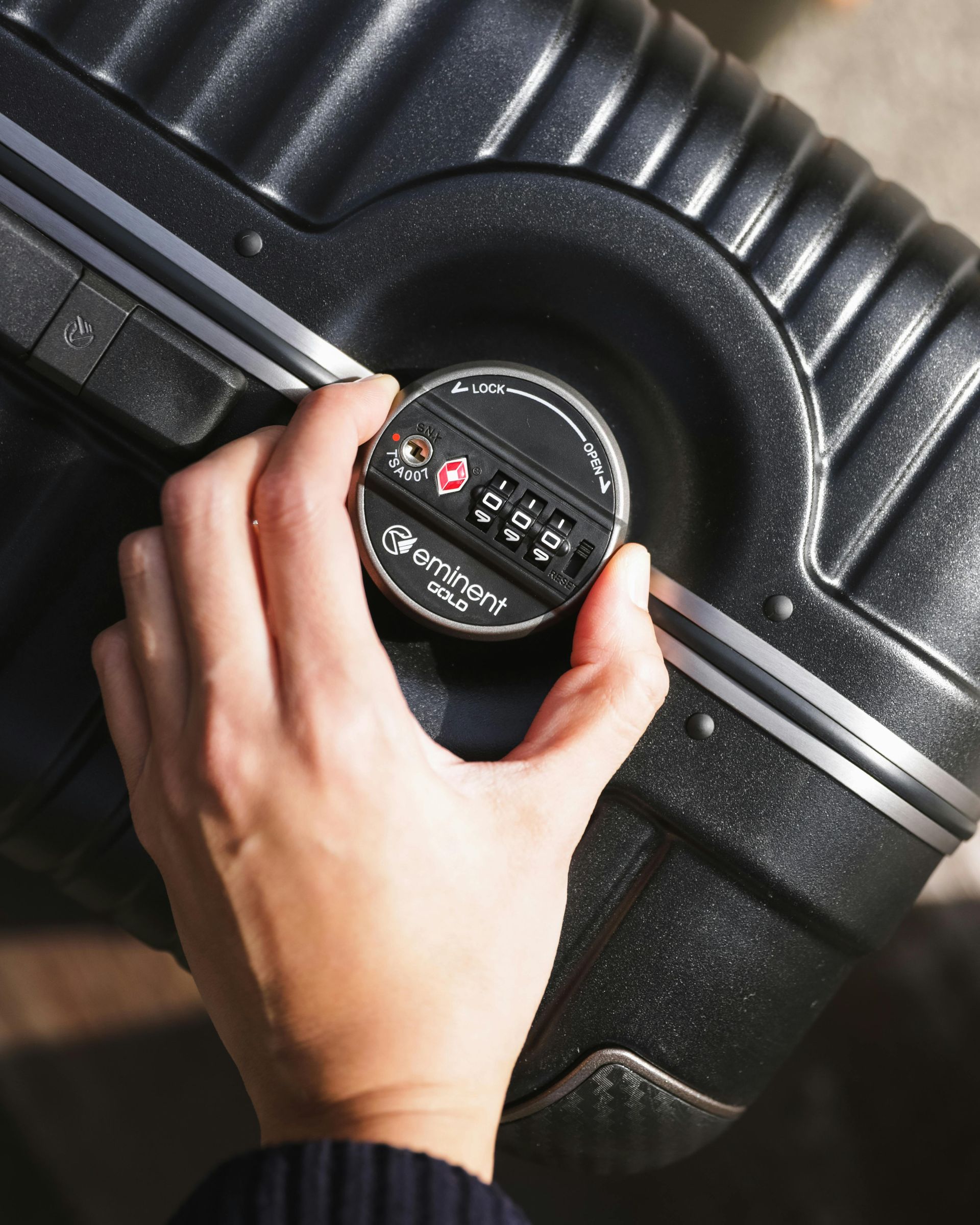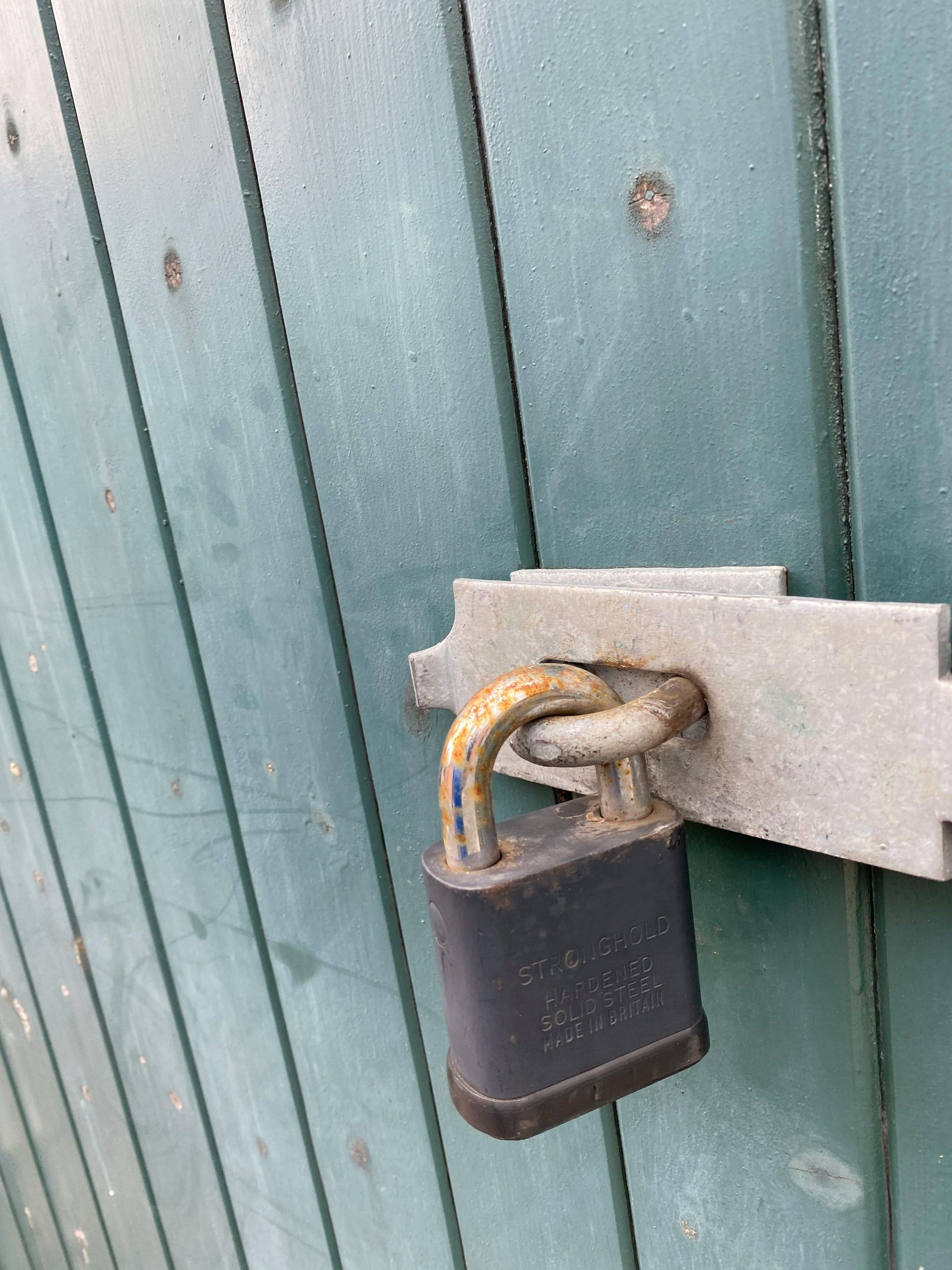Lock repairs and maintenance London
July 30, 2025
When it comes to ensuring a happy and secure home, few elements play a more crucial role than the humble door lock. However, like any frequently used mechanical component, locks require regular maintenance to prevent malfunctions and extend their lifespan. This guide will help you with the essential practices for maintaining door locks, ensuring they stay functional and secure year-round. Alternatively just call us and our lock repair locksmith will take care of it for you.
The need for maintenance
Regular maintenance of door locks isn't just a recommendation; it's a necessity for anyone looking to prolong the lifespan of their door hardware and ensure its reliability. Through preventative servicing, we can avoid lock failures that may lead to inconvenience and potential security risks. Let's dive into the critical steps for maintaining door locks:
- Regular cleaning and lubrication play a pivotal role in keeping lock mechanisms functioning smoothly.
- Inspecting locks allows homeowners to identify issues early on, such as misalignment or wear and tear of components.
- Conducting timely maintenance can stave off the need for emergency repairs or replacements, securing not only your lock but also peace of mind.
- Pay attention - If you notice it starts working differently, or starts making more noise than usual it may be a sign its in need of a service.
What can you do to keep your locks working optimally?
Luckily, keeping your locks in top-notch condition isn't rocket science—it involves a series of simple yet effective steps. Here's what you can do:
- Cleaning is key: Regularly wipe down lock mechanisms with a mild soap solution, making sure to dry them thoroughly to prevent moisture damage. Use an air spray can with a straw to spray into the lock which should remove any loose debris without causing any damage to the lock
- Lubrication is paramount: A squirt of graphite powder or silicone-based lubricant will ensure smooth function; steer clear of oil-based alternatives that can attract grime. Tightening also does wonders: Address any loose screws or hardware to keep the lock aligned and operational.
- Duplication demands precision: When making duplicate keys, choose a reputable locksmith to maintain the integrity of the lock.
- Professional servicing is prudent: Annual check-ups by an expert are invaluable for complex systems or frequently used doors. Call a local locksmith who will be able to assist in lock repairs and servicing.
1 - Regularly clean the locks
The process of cleaning your locks should be systematic and mindful of the lock's materials:
- Gentle cleaning is crucial: Use a soft cloth and avoid harsh chemicals to prevent damage.
- Detailed dusting: Employ a toothbrush or similar tool to nudge debris out of nooks and crannies.
- Thorough drying: Ensure that no moisture is left behind as it can lead to rust or damage internal components.
- Don’t Overclean Locks
- When it comes to locks, more cleaning isn't always better:
- Limit liquid cleaners: These can seep into the internals, promoting rust.
- Opt for dusting: A soft, dry cloth is generally sufficient for routine maintenance.
- Sparingly lubricate: Choose suitable products to keep the lock functioning with ease, without inducing a buildup.
- Be gentle with the locks
- Your approach to maintaining your locks should combine firm action with a gentle hand.
- Use appropriate cleaners and lubricants: Avoid harsh agents and heavy oils that can harm more than help.
- Screw-tightening: This helps to secure lock plates and handle fixtures.
- Precision-made duplicates: Only perfect copies will suffice to prevent unnecessary wear.
2 - How often should I lubricate my locks?
- Lock lubrication should become a part of your regular household maintenance routine:
- Follow a schedule: Every half a year to annually, depending on frequency of use.
- Adjust for environment: If your home faces harsh conditions, lubricate accordingly.
- Always clean first: Prepping the lock before lubrication is essential.
- Lubricate the locks
- Regular lubrication is essential:
- Choose the correct type: Prefer non-attracting lubricants like graphite powder.
- Apply carefully: Direct the lubricant into the keyhole and work it in with the key.
- Integrate into routine: Tie lubrication with regular upkeep schedules for best results.
How to lubricate a mortice lock
- Mortice lock maintenance requires precision:
- Know your lock: Using the right lubricant for your mortice lock is essential.
- Mechanism access: Dismantle carefully for thorough lubricant application.
- Even distribution: Work the lubricant into all the moving parts.
- Clean up: Any excess lubricant should be removed to keep the area tidy.
Graphite Powder
- A small puff of graphite powder can go a long way:
- Dry advantage: Graphite is ideal due to its dry, non-sticky properties.
- Avoid clogging: Too much can be counterproductive; moderation is key.
- Increase longevity: Regular use can help avoid frequent repairs or replacements.
3 - Don’t Use Damaged Keys
A closer look at keys is required:
- Inspect for damage: Even small bends or signs of wear can have a big impact.
- Avoid misuse: Keys aren't tools; incorrect use can compromise their integrity.
- Always have spares: Ready access to undamaged keys is a security must.
Keys cared for will care for your locks:
- No broken or damaged keys: These can be detrimental to your lock's health.
- Correct key use is essential: Forcing the wrong key is a recipe for disaster.
- Handle with care: Keys are sensitive; treat them gently.
4 - Schedule service visits
Pro assistance is invaluable:
- Professional insight: Regular service checks uncover issues you might miss.
- Regular cleaning and adjustments: Experts tend to areas needing special attention.
- Customize servicing frequency: Adjust according to lock type and environmental exposure.
Can I do door lock maintenance myself, or should I call a professional?
DIY lock maintenance is possible with the right approach:
- Simple steps achievable at home: Basic cleaning and lubrication can preserve your locks effectively.
- Watch for wear signs: More serious issues call for professional expertise.
- DIY with caution: Always refer to the manufacturer’s guidelines when undertaking lock maintenance tasks.
In wrapping up our extensive look at maintaining and servicing door hardware and locks, it's clear that a well-kept lock is more than just an operational convenience—it is a guardian of your personal safety and security. With this knowledge at your fingertips, the assurance that your locks are functioning at their best is now within your control. Regular maintenance not only preserves the physical integrity of your door hardware but also keeps money in your pocket and will save you from having to purchase new locks more often. Remember, the key to a secure lock is not just in its strength or design but also in the care and attention we dedicate to its upkeep.
Cleaning Hinges:
- Use a soft brush or cloth to remove any dust, dirt, or debris from the hinges.
- Apply a small amount of mild detergent or dish soap mixed with water to a cloth and gently wipe down the hinges to remove grease or grime.
- For stubborn dirt or buildup, use a toothbrush or small brush to scrub the hinges gently.
- Rinse the hinges with clean water and dry them thoroughly with a clean cloth to prevent rust or corrosion.
Maintaining Hinges:
- Apply a small amount of lubricant, such as WD-40 or silicone spray, to the hinges to keep them moving smoothly.
- Check the hinges periodically for signs of wear or damage, such as loose screws or rust, and tighten screws or replace hinges as needed.
- Avoid using harsh chemicals or abrasive cleaners on the hinges, as they can damage the finish and components.
- Lubricate the hinges regularly, especially if they start to squeak or become stiff, to ensure smooth operation.
To clean and maintain door handles of different variants:
Plastic Door Handles:
- Use a mild detergent or soap mixed with water to clean plastic door handles.
- Gently scrub the handles with a soft brush or cloth to remove dirt or stains.
- Rinse the handles with clean water and dry them thoroughly with a clean cloth to prevent water spots or damage.
Stainless Steel Door Handles:
- Use a mixture of mild detergent and warm water to clean stainless steel door handles.
- Apply the solution to a soft cloth and wipe down the handles, following the grain of the stainless steel to prevent scratching.
- Rinse the handles with clean water and dry them thoroughly with a clean cloth to prevent water spots or streaks.
- You can use a stainless steel cleaner or polish to restore shine and remove fingerprints.
Brass Door Handles:
- Create a cleaning solution using equal parts vinegar and water or lemon juice and baking soda.
- Apply the solution to a soft cloth and gently wipe down the brass door handles, focusing on areas with tarnish or buildup.
- Rinse the handles with clean water and dry them thoroughly with a clean cloth to prevent water spots or damage.
- Optionally, you can use a brass polish or cleaner to restore shine and remove tarnish, following the manufacturer's instructions carefully.
Regardless of the material, it's important to regularly clean and maintain door handles to keep them looking their best and functioning smoothly. Avoid using abrasive cleaners or harsh chemicals that can damage the finish or components of the handles.
Last but not least - Check the door positioning
Proper door position is crucial:
- Watch the level: A non-aligned door puts unnecessary stress on locks.
- Inspect hinges: As the pivot point of door movement, worn hinges can misalign everything.
- Strike plate and screws: Ensure these elements are properly secured and in line for a smooth function.
Should you still be having issues with your door maintenance, or simply would prefer to leave it to the pros, just call us on 0203-151-0531 and we would be more than happy to help. We can have a lock repair locksmith on your doorstep within 30minutes to assist with any lock related issues you may have.

This is one of the top questions people ask before calling a locksmith. Rekeying what it means Rekeying resets the lock’s internal mechanism, so only new keys work. It’s cheaper and fast. Good for: Lost keys (but lock itself is fine) Moving house (if the existing locks are in good condition) Replacing when it’s better Changing the whole lock is best when: Locks are old or damaged You want stronger security You’re upgrading to smarter or multi-point systems A locksmith will recommend the best option after inspecting your hardware.

People searching for a locksmith often worry about cost before they call. So let’s break it down clearly. Typical locksmith pricing Costs depend on: Whether it’s an emergency call-out The time of day Type of service (e.g., unlock, change lock, install new security lock) Parts required Example ballpark figures Emergency opening (no lock change): £60–£150 Lock change (cylinder replacement): £80–£200+ UPVC multi-point lock repair: £100–£250+ High-security lock fitting: £150–£350+ These are typical ranges a local locksmith will confirm before work starts. Tips to avoid surprises Ask for a firm quote before work Confirm whether VAT is included Check if emergency call-outs cost extra Request parts costs upfront SMS Locksmith gives transparent quotes up front , so you’re never left guessing.



